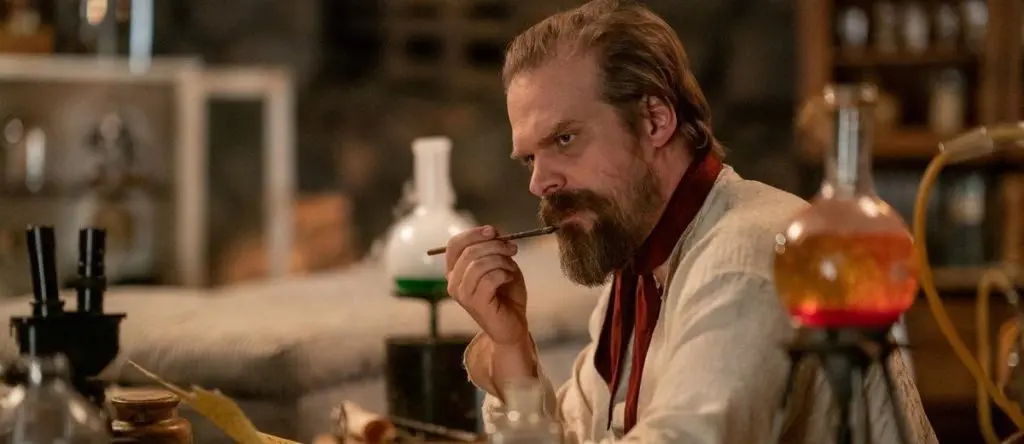Summary
An incredibly bizarre mockumentary that’s occasionally funny but rarely makes much of a point.
With the current television landscape being what it is, it’s rare that I make predictions about anything. But I’m feeling adventurous on this fine Tuesday, so here’s one for you: Frankenstein’s Monster’s Monster, Frankenstein is the weirdest thing you’ll see this week — if not this month, or year. It might be the weirdest thing you’ll ever see.
Is that a bad thing, per se? The jury’s still out. But if I’m being honest, the weirdness is all that this film has going for it, aside from a memorably obnoxious title. The film’s a brisk 32 minutes long and in it, Stranger Things‘ David Harbour plays a version of himself as well as his classically-trained actor father, David Harbour Jnr., whose past as a stage actor is full of mystery.

The whole thing plays out in a mockumentary style, with scenes of David Harbour III’s modern-day investigations interspersed with comically awful snippets of David Harbour Jnr.’s televised stage play, Frankenstein’s Monster’s Monster, Frankenstein, in which he plays Dr. Frankenstein pretending to be Frankenstein’s monster while his assistant, Sal, impersonates Dr. Frankenstein. And if you think that sentence is hard to decipher, it doesn’t get any clearer from there.
Really, the whole thing is a satirisation of classical acting, theatre tropes, and dramatic structure; there’s a whole gag built around Chekhov’s Gun that builds to an absurdly obvious punchline and then keeps going beyond it anyway. And why not? Director Daniel Gray Longino and writer John Levenstein seem to have created something that exists purely to test the limits of how a film — even a short one — should work; how the rules of the genre should or shouldn’t be applied, and how much mileage can be gotten out of David Harbour in what by my count is at least six or seven different roles. And you can’t really criticize it for any of that because the intention is, obviously, to provide no clear answers on the matter. We leave this bizarre piece of work no more knowledgeable about any of it than we were when we entered. And I think that’s the point.




